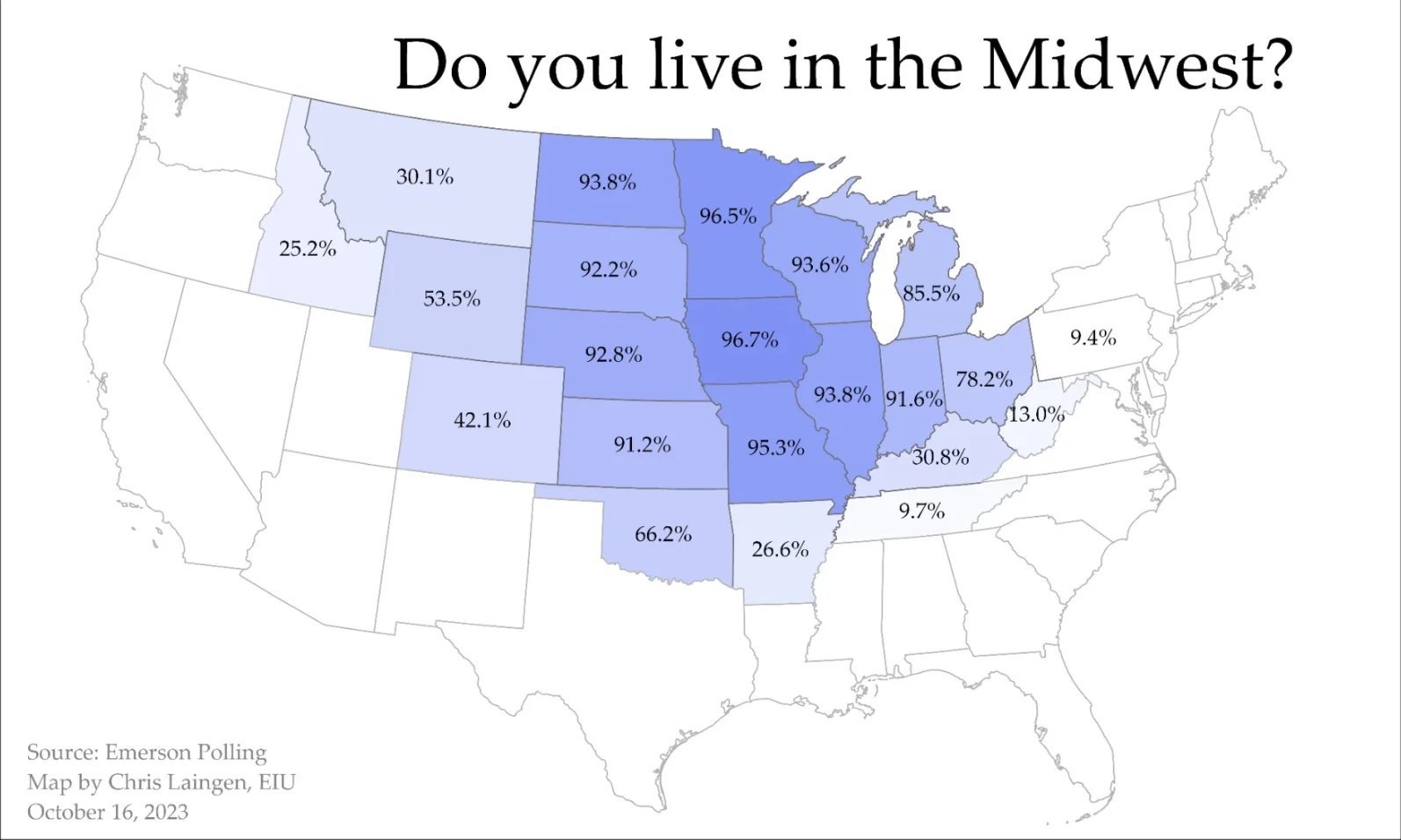this post was submitted on 22 Oct 2023
966 points (97.2% liked)
Mildly Interesting
18038 readers
241 users here now
This is for strictly mildly interesting material. If it's too interesting, it doesn't belong. If it's not interesting, it doesn't belong.
This is obviously an objective criteria, so the mods are always right. Or maybe mildly right? Ahh.. what do we know?
Just post some stuff and don't spam.
founded 2 years ago
MODERATORS
you are viewing a single comment's thread
view the rest of the comments
view the rest of the comments

I was born in Nebraska and lived there until my early 20s when I moved to Wyoming and I've been here for 30 years. I'm very familiar with both areas. The "Great Plains" stops somewhere in the western panhandle of Nebraska. The pine forests up around Chadron (NW corner) have nearly nothing in common with the Cottonwood infested prairie down around Lincoln (SE corner). If you want to stick along I-80, which makes the discussion easier, there's a solid argument that the "Great Plains" ends somewhere West of North Platte and East of Sidney.
Let's start with water, the average annual precipitation in Lincoln is right at 30" but as you go West it keeps decreasing and by the time you reach Sydney it's down to 15", a reduction of 50!
The drastic reduction in precipitation is mirrored by a change in the soil as somewhere around there the soil changes from the rich dark farmland of the East to the tan sand hills of the West. Following the water and soil change the plant life itself becomes notably different; its not only less dense it also has far less of the native prairie grasses in it. The change in plant life also makes the animal life different; for example there are no Antelope on the Eastern side but as you go West they start appearing. Deer and Elk are also different with White Tails disappearing as you move West but Mule Deer and Elk starting to appear. Nebraska has not Native Moose population that I'm aware of but by they can be found even in South Eastern Wyoming.
I've stomped around Colorado and Montana a fair bit too over the last 30 years and it's no different there. The Border Area of Colorado and Kansas is vastly different than the area around Lawrence, Kansas or Manhattan on the East Side. It's the same with the Eastern Border of Montana up against the Dakota's; there's notable and large differences between that area and everything East of North Platte, Nebraska.
The Great Plains as embodied by Iowa, Eastern Nebraska, and Eastern Kansas are separate and distinct from the High Plains of Colorado, Wyoming, and Montana.
I mean, southwest Colorado was part of the Dust Bowl. Culturally it's definitely part of the Great Plains area. I would argue that eastern Wyoming and Montana are as well. They have more in common with the Dakotas than they do with the Rockies.
I still wouldn't consider it the Midwest, but at least there's a tenuous thread of logic to the idea.
Southwest Colorado would be Durango / Montrose which is on west side of the Rockies! You think that's part of the Great Plains area?
Even SE Colorado such as Pueblo and Lamar are very distinct from towns and cities east of North Platte, Nebraska.
Culturally Eastern Nebraska is heavily Germanic / Western European Immigrant. Hell up into the 2000s there were still lots of little churches with at least one weekly service conducted in German. You won't find that in Pueblo.
I'm struggling to understand all of these cultural similarities that some of you see. Yes they're all Americans but everything from the type of soil they live on to their ancestry and immigration patterns is WILDLY different between Lincoln and Pueblo.